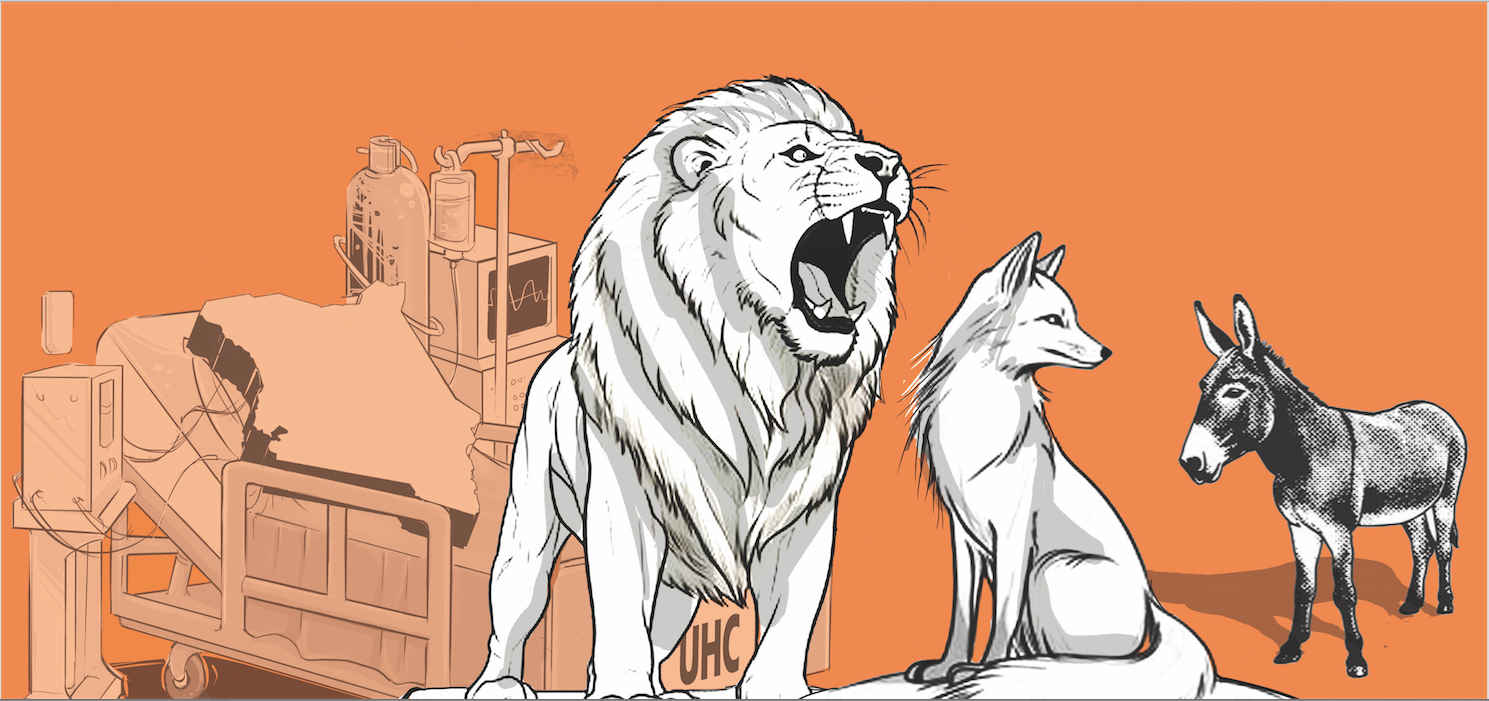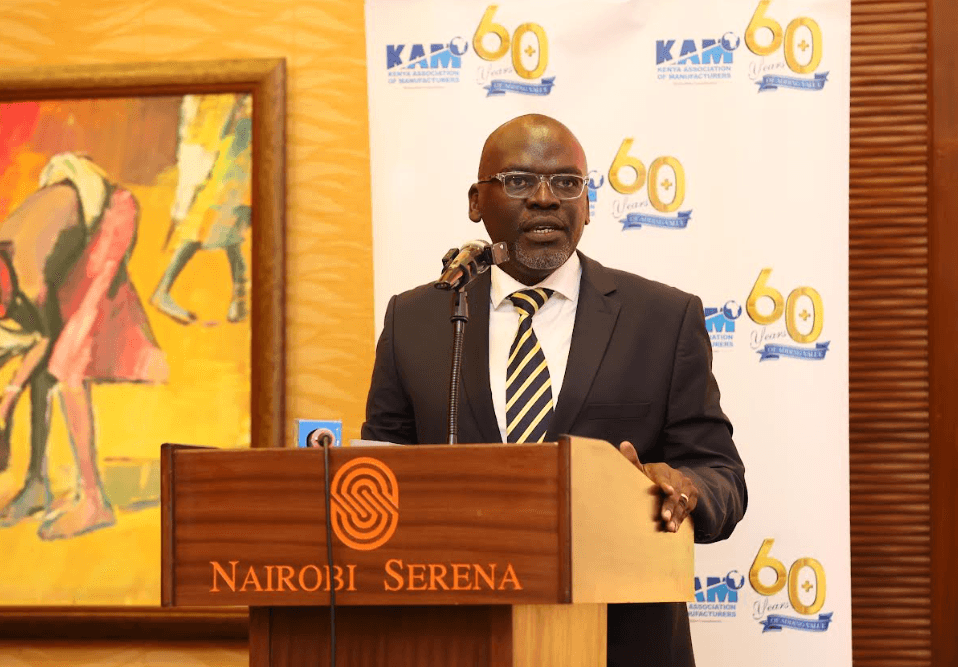

All of Kenya’s political leaders were gathered last week in Homa Bay County for the Devolution Conference. Speeches were made. Declarations of progress were read. The promise of Universal Health Coverage echoed through the halls. But the question we must ask is: progress for whom?
I rarely wade into politics. But when the health of a nation is on the line, silence is complicity. Kenya’s dream of UHC has been dangled before us like a crown, promising dignity, protection and fairness. Yet every time we reach for it, we lose more of our resources, our time and our trust. I have chosen to tell a fable. But this one is not just about animals. It’s about us.
A hungry lion told the fox, “Get me something to eat, or I will eat you!” The fox went to a donkey and said, “The Lion wants to make you a king, come with me.” When the lion saw the donkey, he attacked, biting off its ears, but the donkey ran away.
The donkey told the fox, “You tricked me! The lion tried to kill me!” The fox replied, “Don’t be silly! He took your ears so you could wear a crown! Let’s go back.” The donkey thought this made sense, so it followed the fox again.
This time, the lion attacked the donkey and bit off its tail! The donkey escaped again, saying to the fox, “You were lying! The lion cut off my tail!” The fox said, “He just wants you to sit comfortably on the throne! Come back with me.” The fox convinced the donkey to return once more. The lion then caught the donkey and killed it. The lion said to the fox, “Good job bringing back the donkey. Now, skin it for me and bring its brains, lungs, liver and heart!”
The fox skinned the donkey and ate its brain but brought back its lungs, liver and heart to the lion. The lion got angry and asked, “Where is its brain?!” The fox replied, “It had no brain, my king. If it had one, it wouldn’t have come back to you after you hurt it!”The lion thought for a moment and said, “That is very true.”
It’s a fable. But it could just as easily describe Kenya’s long and painful journey toward Universal Health Coverage.
In this story, the lion is our political leadership, powerful, hungry for legacy projects and always circling. The fox is the health policy machinery, from technocrats and bureaucrats to donor-funded advisers and think tanks. Clever, persuasive and often more loyal to power than to people. And the donkey? That’s the Kenyan citizen, especially the low-income worker, full of hope, endlessly patient, but repeatedly deceived.
Since 2005, we have been told that UHC is just around the corner. New pilot projects. New insurance schemes. New reforms. NHIF became SHA. User fees were scrapped, then quietly reintroduced.
Bills were subsidised, then rejected. The promise remained: “You will be king.” But what we got instead were chopped ears—hospitals without medicines, overwhelmed clinicians, ghost facilities. Then tails—catastrophic costs, preventable deaths and families pushed into poverty by treatment expenses.
Still, we return. We trust that the same system that denied us healthcare yesterday will somehow deliver it tomorrow. That if we pay a little more tax, tolerate one more transition, accept one more policy documents, then maybe, just maybe, we will wear the crown of a functional health system.
We are not fools. But we are tired. And, tragically, forgetful.
Kenya does not lack brains. It lacks memory. It lacks accountability. We watch as budgets are reallocated, primary healthcare funds mismanaged, emergency care promises diluted. Those who failed to deliver NHIF reforms are now fronting SHA as the solution. The same fox, a different costume.
And when we question this, we are told it’s for our own good. That losing our tail is just part of getting ready to sit on the throne. That painful co-payments and insurance limits are stepping stones to equity. We must ask: how many times will we return to this lion’s den of reform?
There comes a time when the people must say no. When we must see that this is not reform, it’s recycling. That the foxes circling our healthcare system are not building systems but preserving political fiefdoms.
Let’s stop waiting for 2027 or another UHC summit to start thinking. Let’s ask hard questions about financing, accountability, transparency and equity. Let’s demand a UHC that works for the boda rider, not just the policy elite. Let’s stop following foxes into dens of lions.
Because in the end, it was not the lion or the fox who sealed the donkey’s fate. The donkey decided to go back.
The writer is an Orthopaedic surgeon, entrepreneur and columnist focused on health systems, leadership and public accountability.
















